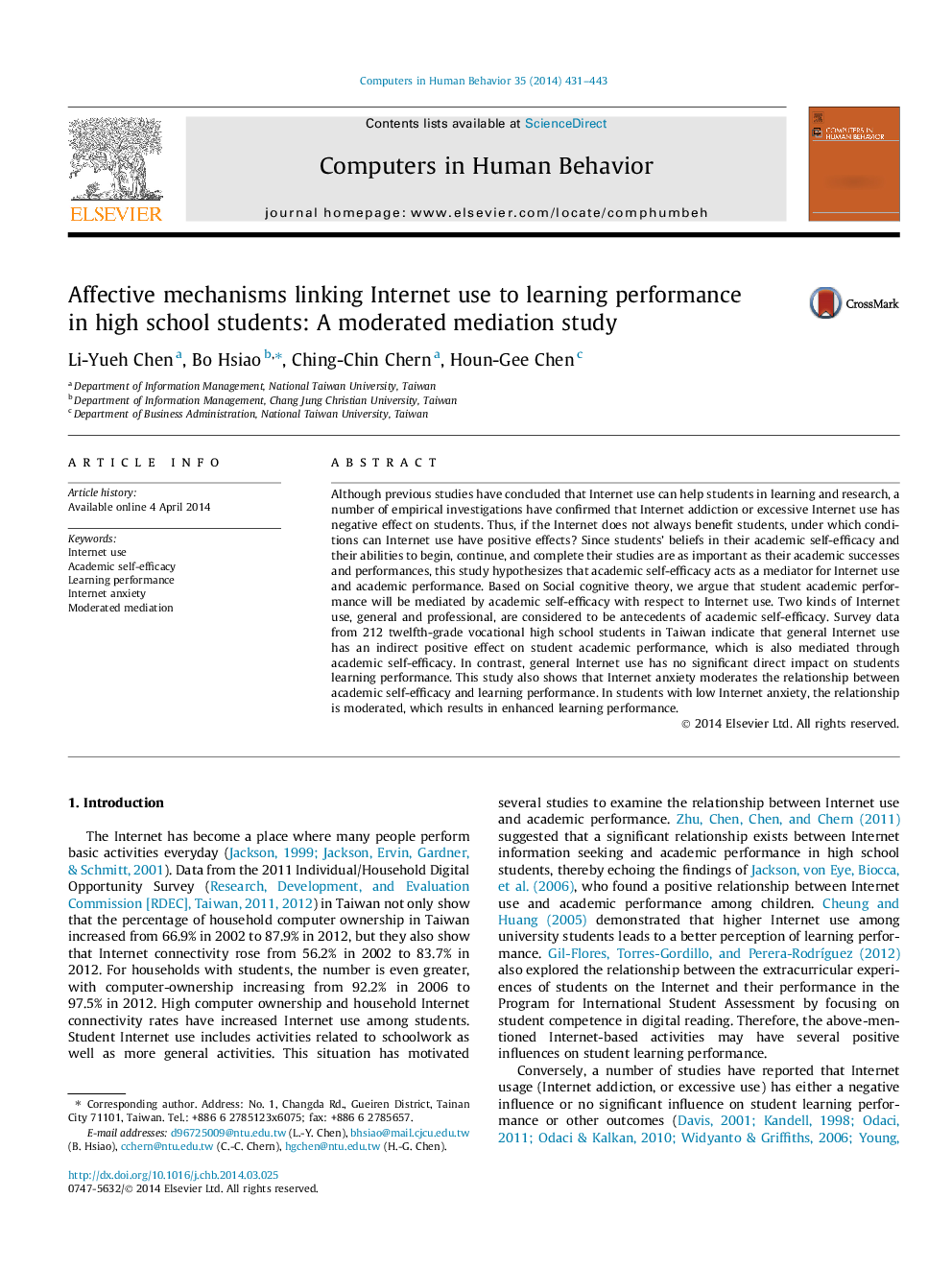| Article ID | Journal | Published Year | Pages | File Type |
|---|---|---|---|---|
| 350542 | Computers in Human Behavior | 2014 | 13 Pages |
•Academic self-efficacy is a mediator for general and professional Internet use.•Internet anxiety moderates the indirect effect of professional Internet use.•Self-efficacy beliefs mediate the indirect effect when Internet anxiety is low.
Although previous studies have concluded that Internet use can help students in learning and research, a number of empirical investigations have confirmed that Internet addiction or excessive Internet use has negative effect on students. Thus, if the Internet does not always benefit students, under which conditions can Internet use have positive effects? Since students’ beliefs in their academic self-efficacy and their abilities to begin, continue, and complete their studies are as important as their academic successes and performances, this study hypothesizes that academic self-efficacy acts as a mediator for Internet use and academic performance. Based on Social cognitive theory, we argue that student academic performance will be mediated by academic self-efficacy with respect to Internet use. Two kinds of Internet use, general and professional, are considered to be antecedents of academic self-efficacy. Survey data from 212 twelfth-grade vocational high school students in Taiwan indicate that general Internet use has an indirect positive effect on student academic performance, which is also mediated through academic self-efficacy. In contrast, general Internet use has no significant direct impact on students learning performance. This study also shows that Internet anxiety moderates the relationship between academic self-efficacy and learning performance. In students with low Internet anxiety, the relationship is moderated, which results in enhanced learning performance.
